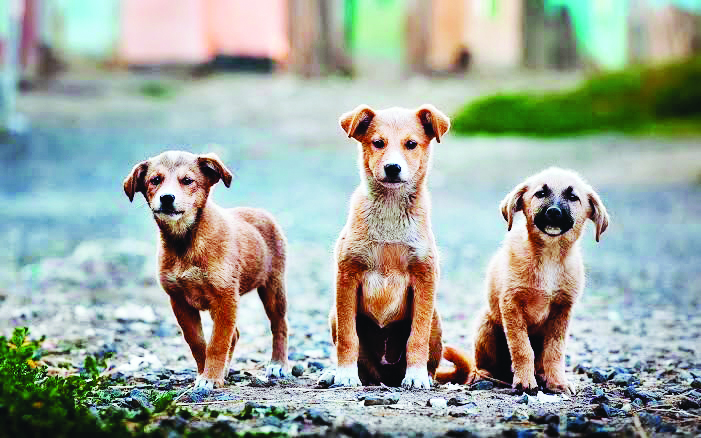Man versus dog
The only way to tackle the stray dog issue is through the prism of humanness and transparency

Man’s best friend is today enemy No. 1. In the national capital, tensions rise as the state government plans to “rehabilitate” hundreds of stray dogs. Animal rights activists question the rehabilitation and purported plans of relocating the canines. They conjecture that such a plan can only lead to cruelty and possibly culling of ‘desi’ dogs.
The animal versus man face-off has been playing out for a long time in our urban jungle, where we build skyscrapers and yet don’t even give scraps to the speechless animals. Those who do support helpless street animals are either demonised or looked up as unhinged beings. Take a look at any of the oft-circulating videos of residential communities where animal feeders are vilified, sometimes even beaten up for showing compassion. Many would perhaps make peace if India followed the footsteps of the governments in Bali and Baghdad that mercilessly killed hundreds of dogs to stem the menace of rabies. The murders were so heartless that unsuspecting dogs were lured with poisoned meat only to meet their end; and then, there were rifles too.
Will India, an empathetic nation that values its human as well animal life, resort to such senseless killings? The Delhi High Court has directed the state government to rehabilitate the strays and no one would be happier than the irritating neighbourhood uncle or aunty who are themselves petrified of dogs. It’s strange how many Indians are completely fearful of animals, isn’t it? But I digress. The High Court’s directive has been met with suspicion by animal rights activists who insist that any such plan will be a garb for cramped unhygienic dog shelters, lack of food and medicine, and a cold end to warm, loving furries.
Now here’s the flip side of the argument, and while I’m an ardent dog-lover myself, it’s a concern that cannot be ignored. As per the latest data released by the Ministry of Health and Family Welfare (MoHFW), incidents of dog bites in India surged by 26.5 per cent every year. The incidents increased from 2.18 million in 2022 to 2.75 million in 2023. There are allegedly 2,000 dog bites every day in Delhi that has created an atmosphere of terror for children and the elderly. While living in Delhi, I have faced the wrath of dog packs, thankfully without injury. For those who are generally afraid, aggressive dogs moving in packs can induce a heart attack. But hey, before you start nodding as to how terrible it is to have strays around us, let us also not forget that these strays have the right to exist in the location of their birth. They are starving almost always, fighting for survival, and very often brutally abused and tortured. And while there are numerous incidents of dog bites and attacks, let’s also remember the scores of times that the Indian pariah dog has saved his human neighbours from theft, rape, assault, you name it and our desi has done his duty.
This is not just a problem that’s unique to Delhi — it’s emerged as a public health crisis in Maharashtra, Karnataka, and Kerala. But let’s don’t blame the dogs for this man-made problem. The number of dogs has increased because procreating is in their DNA. Our job was to implement effective sterilisation campaigns to control their numbers. Our human duty was to encourage people to adopt more strays than purchase expensive breeds. The state governments that have stray dogs as a problem must investigate if the concerned departments have honestly conducted sterilisation drives. It’s not uncommon to see clipped ears — a common mark used by veterinarians to denote neutered strays — of dogs and cats who are seen reproducing within a few months. Where have all the funds gone? Who is responsible for this likely instance of corruption? Weren’t there enough funds allocated in the first place? Can hyperlocal shelters be explored to ensure that the dogs don’t face cruelty due to relocation?
We are standing at an interesting crossroads wherein humanitarian approach should lead the way in protecting both human and canine lives. We can’t change animal nature; that’s bound to react if it anticipates persecution. Indian pariah dogs do need rehabilitation but it should be a transparent humane process that gives them access to healthy, clean, joyous living in spacious shelters. We need to take a leaf out of countries such as the Netherlands and Bulgaria that have successful government-backed vaccination and sterilisation programmes. The Netherlands also levies a hefty “puppy tax” on the purchase of dogs with the view of encouraging adoptions. Animal police to safeguard the strays and mandatory pet registration to prevent their abandonment can further help tackle the crisis. In order to promote transparency and trust, all stakeholders, especially animal rights activists, must be made part of the policy-making process.
The writer is an author and media entrepreneur. Views expressed are personal



